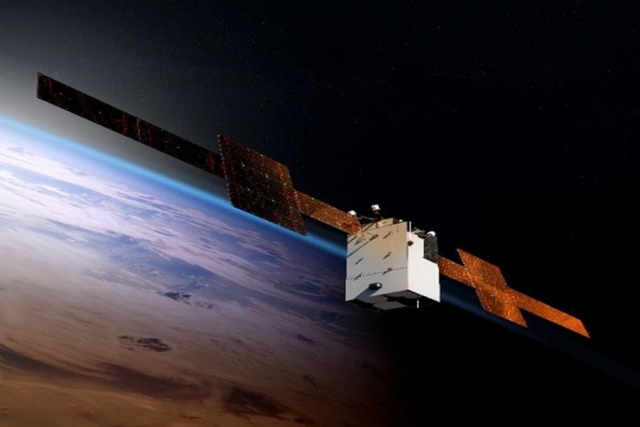Boeing-built Space Force Satellite Passes Design Review
Boeing and the US Space Force successfully completed the first major engineering design review for the Wideband Global SATCOM (WGS)-11+ communications satellite. This successful review demonstrates that Boeing is ready to proceed to the final system design phase. Production will begin next year at Boeing’s El Segundo factory, with delivery scheduled for 2024.
WGS-11+ features a modern digital payload that performs at twice the operational capability of its predecessors, increasing the availability of military-grade communications. Leveraging advances in Boeing commercial technologies, it will provide secure communications to connect US and allied forces globally.
The current WGS constellation, consisting of 10 satellites, is the backbone of the US military’s global communications system, providing flexible, high data-rate connectivity. Users include all U.S. military services, the White House Communications Agency, the US State Department and international partners.
“Completing this engineering design review is a key milestone and brings us one step closer to delivering this groundbreaking satellite to the warfighter in record time, significantly improving capacity and coverage to our soldiers, sailors, airmen, Marines and allies,” said Colonel John Dukes, chief of the Geosynchronous/Polar Division at Space and Missile Systems Center Production Corps.
“WGS-11+ uses narrower spot beams to deliver a stronger, more reliable connection exactly where it’s needed, which means better performance and greater flexibility than ever before,” said Troy Dawson, vice president of Boeing Government Satellite Systems.
In addition to US military forces, the WGS constellation provides service to international partners including Australia, Canada, Denmark, Luxembourg, New Zealand, the Netherlands, the Czech Republic and Norway. –shp/mgm (Boeing Image: Top rendering shows the WGS-11+ satellite, which is being built in El Segundo, California, and will be delivered to the US Space Force in 2024.)


